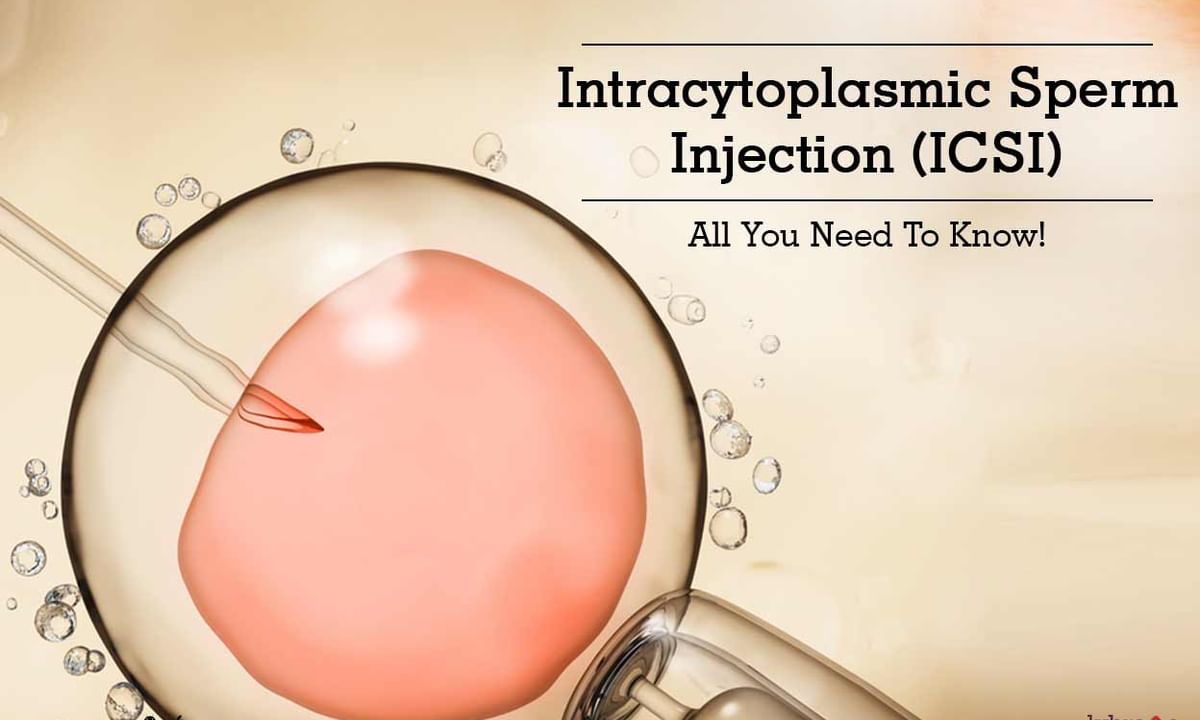
Introduction
ICSI means injecting a single live sperm directly into the center of a human egg. The technique is enhanced to help achieve fertilization for couples with severe male factor infertility or partners who have had non-success in fertilizing earlier in vitro fertilization (IVF) try under ICSI Fertility Treatment.
- The process overcomes many obstacles to fertilization and permits teams with little hope of achieving successful pregnancies to obtain fertilized embryos under the best IVF Doctor in Noida.
- The procedure requires the female partner to undergo ovarian stimulation with fertility medications to develop several mature eggs. These eggs are then enunciated through the vagina utilizing vaginal ultrasound and fertilized under precise situations in the embryology lab under ICSI Fertility Treatment.
- The semen sample is produced by centrifuging or spinning the sperm cells through a particular medium. It divides live sperm from debris and most of the dead sperm. The embryologist then collects the single live sperm in a glass needle and injects it straightly into the egg.
Zeeva
Zeeva Clinic is the best clinic for IVF and cancer treatment in India. Situated in the prominent location of Noida, the clinic is well-furnished with advanced technology. We are widely recognized for clinical excellence and personalized observation. We give advanced Fertility and Cancer Treatment with a vision to provide world-class clinic facilities by Dr. Vikas Goswami & Dr. Shweta Goswami, the Best IVF Doctor in Noida.
Who should consider ICSI?
ICSI is considered necessary for male factor infertility with an abnormal semen analysis. However, about 75 percent of all IVF situations in the Bay Area are now ICSI. Patients are deciding to undergo ICSI for reasons other than male factor infertility, including:
- Previous poor fertilization with IVF
- Variable sperm counts
- Unexplained infertility
Many patients undergo the ICSI procedure to maximize their success even when it is not specified.
If you have said there are deviations with sperm test results, you should consider ICSI. Suppose the man has had a vasectomy abolition. In that case, we also recommend ICSI regardless of sperm quality because of the existence of sperm antibodies that may affect fertilization suggested by the best IVF Doctor in Noida.
The decision to proceed with ICSI is challenging if there is no prior confirmation of male factor infertility under ICSI Fertility Treatment. Some couples select ICSI because they want to do everything possible to boost fertilization.
However, it is essential to understand that for many couples with standard sperm frameworks, maximal fertilization can be accomplished with standard insemination during IVF without utilizing ICSI suggested by the best IVF Doctor in Noida.
Who should consider split ICSI?
For couples interested in knowing about their fertilization capability, we offer split ICSI. This option involves performing ICSI on most mature eggs and incubating the remainder with sperm. Breaking ICSI can give a safety net against failed fertilization with accepted insemination under ICSI Fertility Treatment.
The fee charged for breaking ICSI is equal to ICSI. One condition for breaking ICSI is a minimum number of grown eggs. We must be able to recognize at least eight grown eggs on the day of your egg retrieval to proceed with split ICSI. We will inject all your grown eggs if this requirement is unmet.
How successful is ICSI?
Through the ICSI procedure, many couples with complex male factor infertility problems have achieved pregnancy at UCSF, as suggested by the best IVF Doctor in Noida. Pregnancy rates are equivalent to those seen with IVF in couples with no male factor infertility. Fertilization assessments of 70 to 80 percent of all eggs injected – equivalent to fertilization with normal sperm – are currently being completed under ICSI Fertility Treatment.
The most important signal of ICSI success seems to be the fertilization rate accomplished with the ICSI process. The fertilization rate in the UCSF IVF lab is unusual – currently 80 to 85 percent.
What are the risks connected with ICSI?
There are different risks. First, during the ICSI process, a small number of eggs – usually less than 5 percent – can be damaged due to needle infusion. Second, the overall danger of having a baby with a chromosomal irregularity in the X or Y chromosomes is 0.8 percent, or eight per 1000, which is four times the norm of spontaneous fertilization suggested by the best IVF Doctor in Noida. Right now, we do not know the reason for this enhanced risk.
It is essential to acknowledge that the following issues can be connected with sex chromosome irregularities:
- Enhanced risk of miscarriage
- Heart issues for affected infants that may need surgery
- Enhanced risk of behavior or learning disorders
- Enhanced risk of infertility in your children during their maturation
The chance of having a chromosomal irregularity like Down’s syndrome is not enhanced with ICSI but improves with maternal age.
Several studies have directed the issue of developmental problems in babies born with ICSI. However, there is no conclusive confirmation that this is the fact.
Will all of our eggs be injected?
If you decide to continue with ICSI, we will try to inject as many eggs as conceivable. You need to understand that only mature eggs can be injected with sperm. Our IVF laboratory can quickly tell if an egg is mature or immature. Although the green eggs are incubated with sperm, the likelihood of fertilization is very low. We can inject 75 percent to 80 percent of the recovered eggs under ICSI Fertility Treatment.




